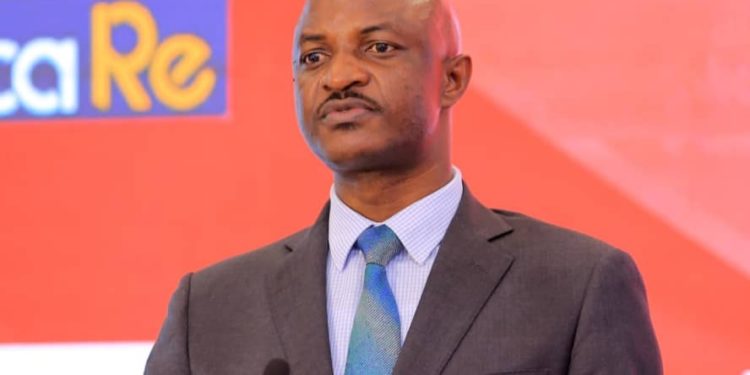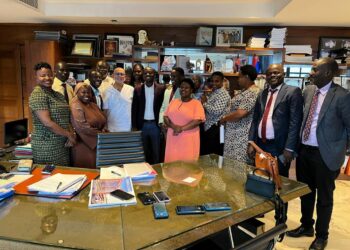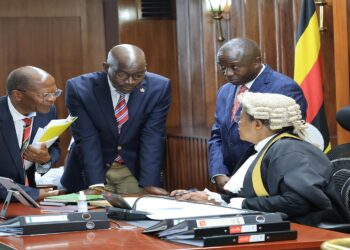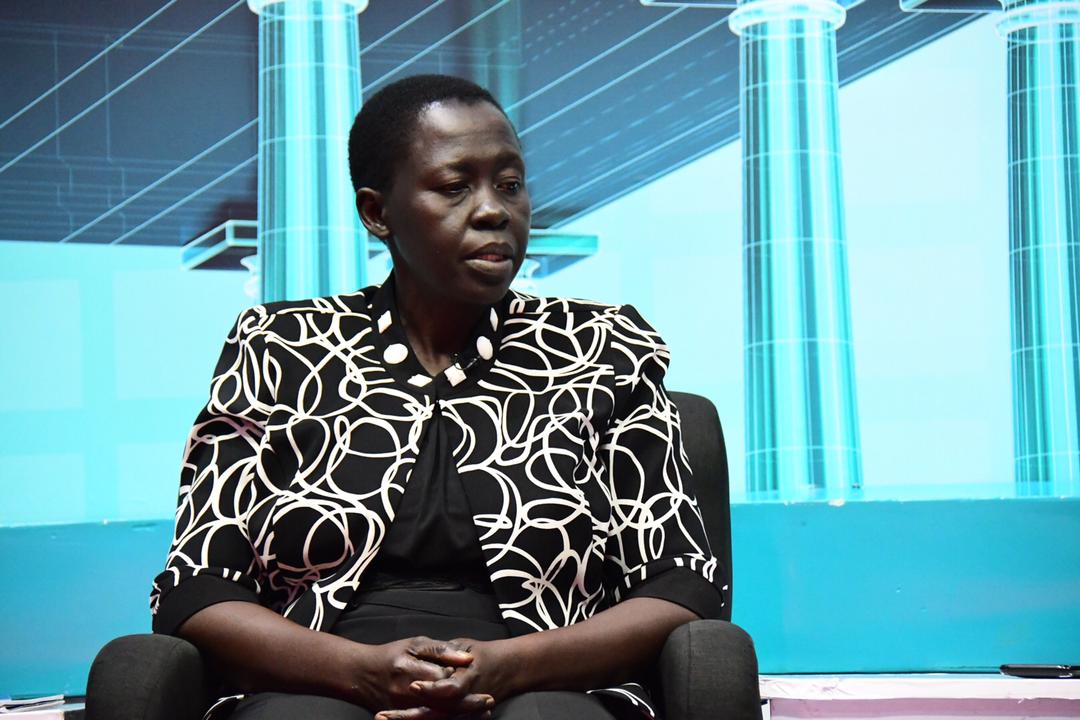The Permanent Secretary to the Ministry of Finance, Planning and Economic Development, Ramathan Ggoobi has revealed that the current structure of Uganda’s economy only benefits a few.
The Secretary to the Treasury made this revelation last Friday during the first National Public Relations Symposium held at Hotel Africana. Mr Ggoobi said that currently the main focus of the government now is to reform the way the economy is being operated.
“The economy of Uganda is structured in such a way that it’s working for a very few people, when growth comes in it’s going to the already haves, leaving out a lot of other Ugandans. Most of Ugandans are still stuck in sectors that don’t either contribute substantially to the economy growth, or sectors which have very low returns on investments. That is how the sector is structured,” he said.
Mr Ggoobi added that although leaders in government keep on singing subsistence, they are running a risk of getting bored of realities because Uganda’s economy is structured in such a way that 73 per cent of the population is employed by a sector which contributes 32 per cent of Gross Domestic Product. This means that nearly three-quarters of the population are sharing less than a quarter of the GDP.
“That means we must have a very substantially change in the way we approach economic policies, in the way we approach budgeting, in the way we approach accountability, the way we measure results and that is what we are now focused on ensuring that the sectors which contribute more to the GDP also employ more of the people that is how the economies that work for people are structured.”
Solutions to restructuring the economy:
Mr Ggoobi revealed; “Our efforts are geared to doing that, so beginning next financial year, it’s going to be a marathon of changes because it has taken 50 years for the economy to look like this but to change it, will not take 50 years if we run a good marathon, within a few years, this can start with shifting the structure of the economy from being pre-dominantly extractive to having an economy which is based on investments in modern sectors.”
He emphasized that if the main sector is agriculture, let it be industrialized, or if they are minerals, let the minerals also be industrialized.
“We now have oil and gas as a very key sector in terms of bringing in some dollars. Although it’s a good windfall how do we structure it in such a way that it will be able to trickle down money to the common man?” he questioned.
However, Mr Ggoobi informed the Public relations officers that government alone will not run and manage the marathon of changing the economy. He asked them to always communicate these strategies to the masses. He alluded that people with strong voices and opinion leaders should not be very comfortable because Uganda’s economy gives no comfortable place to the common man.
“We continue growing food, we eat and look very health, beautiful but broke, that economy does not work.”
“We need to distort some things we have been doing, starting with the way we budget. The budget must be informed by the plan and the plan must be in such a way that is reflecting the realities on the ground. We have been gradually reforming this budget but these changes need to be communicated fully to policymakers like Members of the House because if they don’t understand the reforms, it will be easy to distort the reforms thus going back to the same economic structure that benefits a few groups.”
According to Ggoobi, the previous budgets were designed in such a way that every single year, each agency with over 270 votes gets the money. Then ministry of Finance borrows money to facilitate expenditure pressures (priorities of the budget) thus making the budget keep on growing bigger every year. In the end, the expenditure pressures have always not given out results because the budgets have always been not responsive to them.
He noted that money has to move with priorities, and currently that is what the Ministry of Finance is trying to do. (To ensure that the budget is redistributive, not distributive.) Redistributive from priorities which are no longer very critical to critical ones.
“Beginning this coming Financial Year, we have opened the budget and moved the money from one place to the priorities and if we are to borrow, we shall do it only to those areas we know that they will return the money borrowed to pay the debt but these other things move money from other areas to fund in that is how we can have a budget that is responsive to the plan.”
Do you have a story in your community or an opinion to share with us: Email us at editorial@watchdoguganda.com













